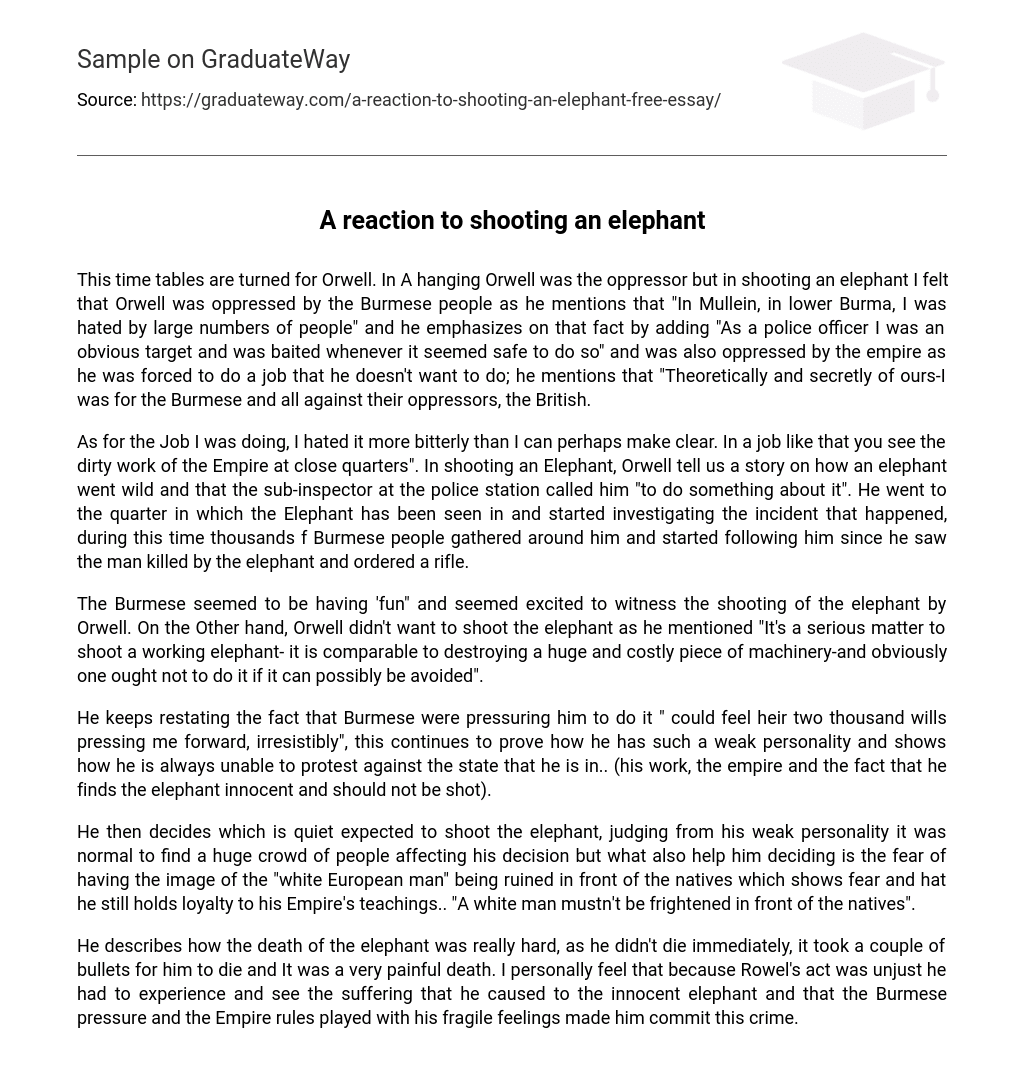This time, the tables have been turned for Orwell. In “A Hanging,” Orwell played the role of oppressor. However, in “Shooting an Elephant,” Orwell experienced oppression from the Burmese people. He reveals that “In Moulmein, in lower Burma, I was despised by a large number of people.” Additionally, he emphasizes this point by stating “As a police officer, I was an obvious target and was taunted whenever it seemed safe to do so.” Moreover, he felt oppressed by the empire as he was compelled to perform a job that he vehemently opposed. He states that “In theory and secretly, I was with the Burmese and against their oppressors, the British.”
I detested the Job I was doing with a level of bitterness that may be hard to fully convey. In such a position, one witnesses the grim tasks of the Empire up close. Orwell recounts a tale of an unruly elephant and how he was summoned by the sub-inspector at the police station to intervene. He ventured to the area where the Elephant had been sighted and proceeded to inquire about the incident that had transpired. Throughout this ordeal, numerous Burmese individuals flocked to his side, as word spread of the man’s encounter with the elephant and his subsequent request for a rifle.
The Burmese appeared to be enjoying themselves and were enthusiastic about witnessing Orwell shoot the elephant. Conversely, Orwell did not want to shoot the elephant, stating, “It is a serious matter to shoot a working elephant – it is like destroying a large and expensive piece of machinery – and obviously, one should not do it if there is any way to avoid it.”
The continuous restatement of Burmese pressure on him reinforces his weak personality and inability to resist the state he is in. He emphasizes feeling compelled by the collective wills of two thousand Burmese, further highlighting his powerlessness. This pressure is particularly evident in his reluctance to shoot the innocent elephant, as it contradicts his beliefs and the demands of his job in maintaining the empire.
Deciding to shoot the elephant was not a surprise, given his weak character. The pressure from the large crowd influenced his decision, as did the fear of tarnishing the image of the “white European man” in front of the indigenous people. This fear demonstrated his loyalty to the teachings of his Empire: “A white man should not show fear in front of the natives.”
In this passage, the author recounts the difficulty of the elephant’s death. The elephant did not die immediately; it took several bullets and caused immense pain. The author believes that Rowel’s unjust act resulted in him witnessing the suffering he caused to the innocent elephant. Additionally, the influence of Burmese pressure and imperial rules played upon Rowel’s delicate emotions, leading him to commit this crime.





